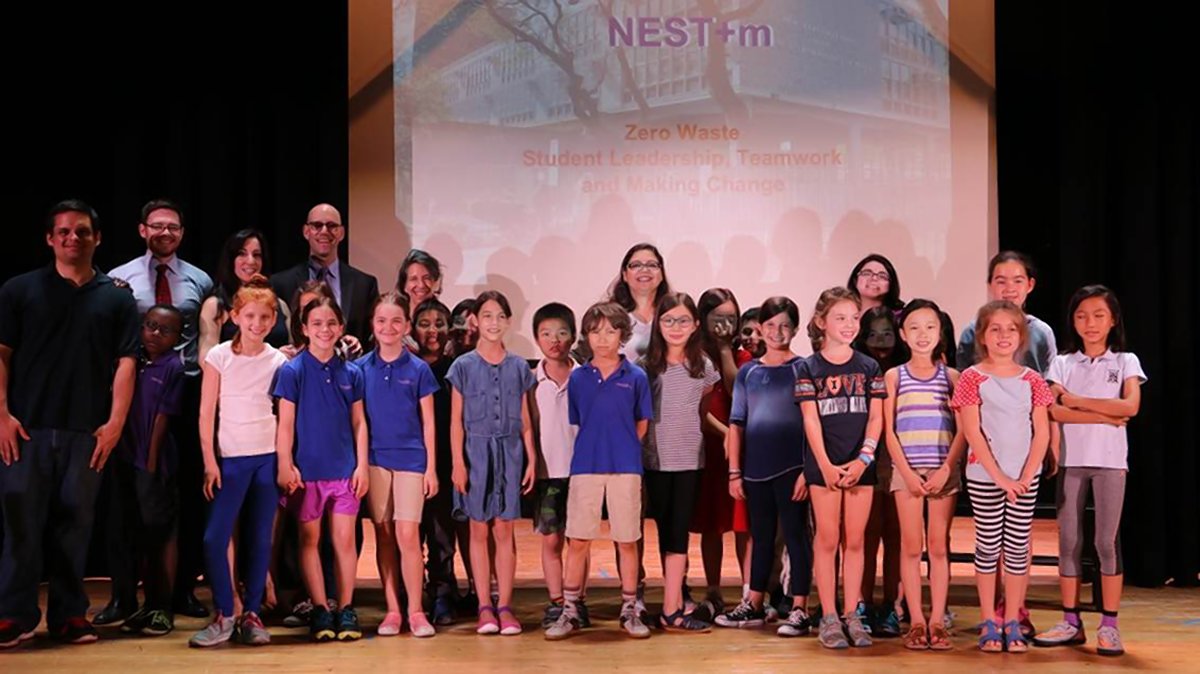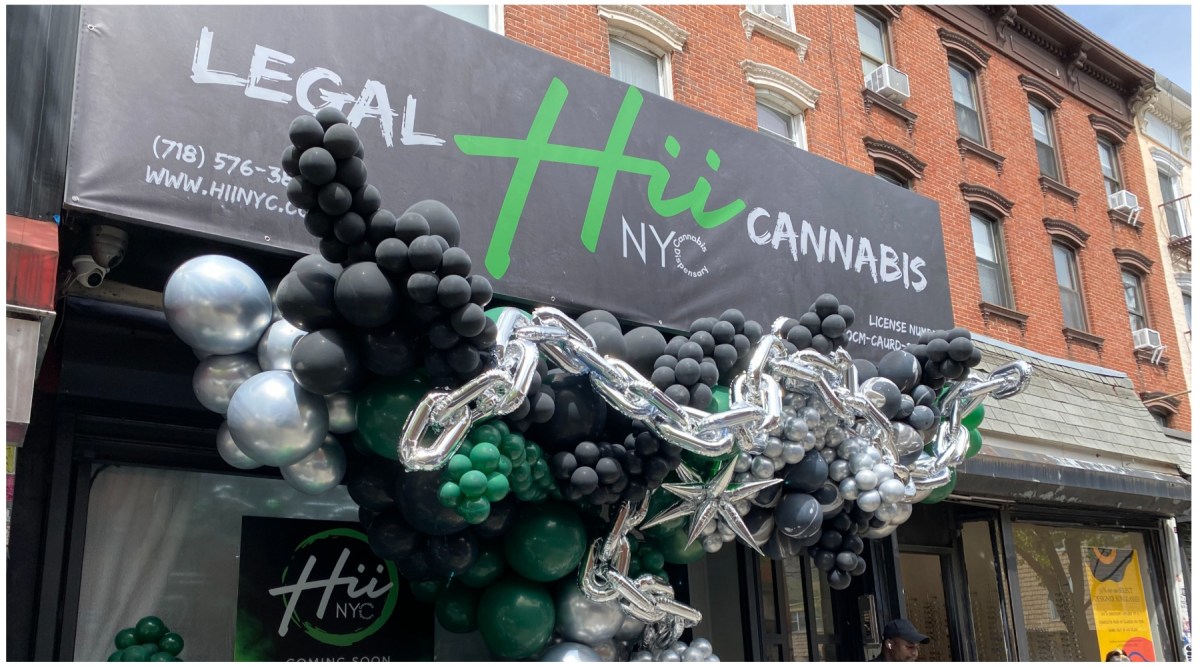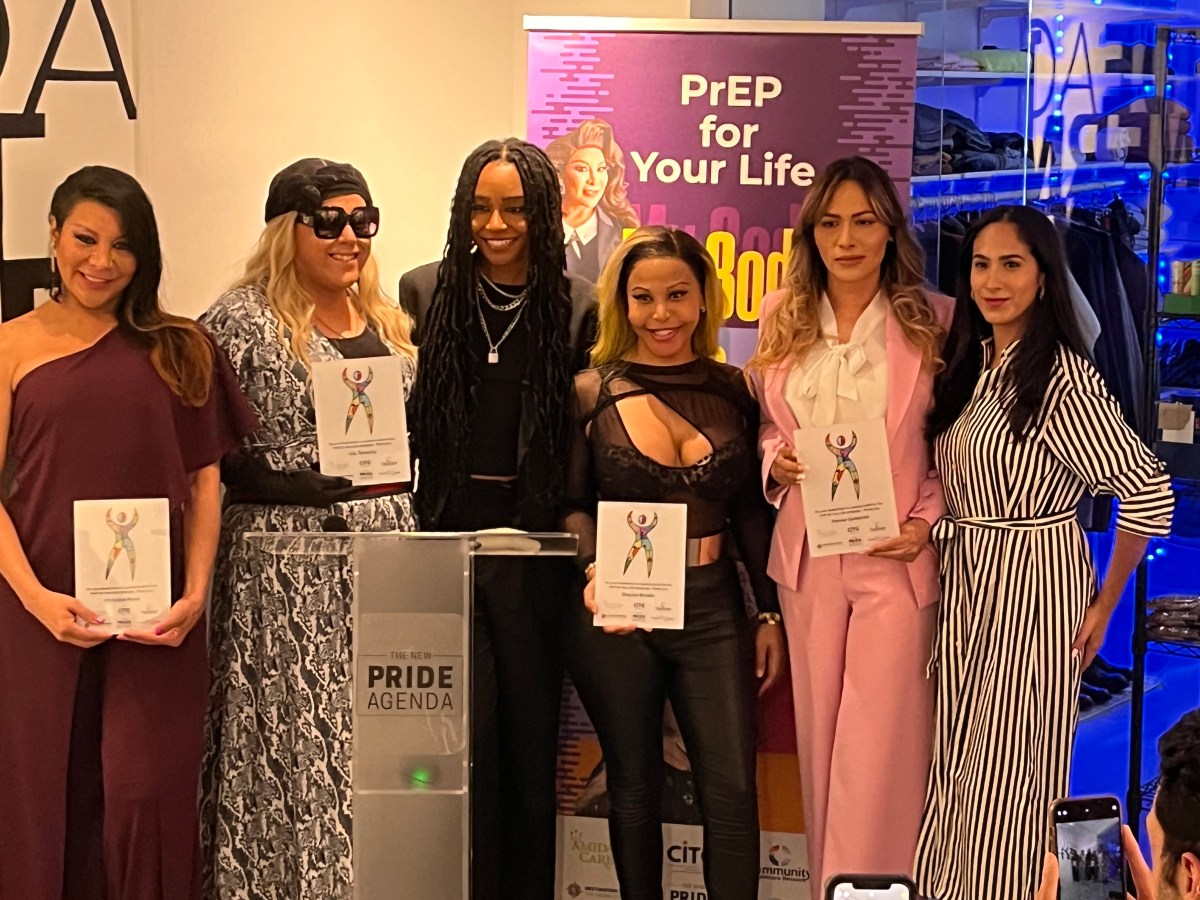
BY AMY RUSSO | Reading, writing, arithmetic — and recycling. For Councilmember Rosie Mendez, that’s the future of education.
Mendez recently recognized the school New Explorations into Science, Technology and Math (NEST+m) through the city Department of Sanitation’s Golden Apple Awards program for cutting down trash output from 30 bags per day to a mere two.
NEST+m was given a $5,000 cash prize for its accomplishments in helping the Big Apple move toward a zero-waste city.
The Lower East Side school, at 111 Columbia St., achieved its goal in partnership with Cafeteria Culture, a nonprofit that has collaborated with government, environmental groups and educational institutions to promote greener diningware and zero-waste cafeterias. The organization helped the school establish its Cafeteria Ranger Program, a zero-waste-based initiative that educates children about the environmental consequences and benefits of trash recycling, explained Mendez.
“The students were awarded the Golden Apple Award for this incredible accomplishment that was a col
lective effort of the entire student body, with a leadership role from its third grade class,” Mendez said.
Before the school began the program, its recycling had a lot of room for improvement. A presentation from the school states, “Paper was separated in the classrooms — but at the end of the day, everything went into one bin!”
NEST+m students were able to cut down on waste output through a variety of measures. These included reusing gently worn school uniforms, collecting old batteries, phones and markers, and introducing homemade cleaning products, plus purple microfiber towels rather than paper towels.
The pupils remained engaged in the classroom, as well, where Cafeteria Culture held “Garbology 101,” a course that teaches the importance of recycling and how to do it.
Under the green scheme, eco-friendly initiatives are enforced in the lunchroom by students who are appointed “cafeteria rangers.” Gloves and badges denote the recycling captain, plate captain, compost captain, landfill captain and green leader.
The recycling program was also completed with the help of middle school and high school volunteers, as well as school food employees and custodial staff who play an essential role each day.
Environmental advocacy also extends past the classroom for NEST+m students, who attended a rally in April in support of banning plastic bags — or, more accurately, for a surcharge on plastic bags at supermarkets and delis. Students mustered in front of the City Hall steps with homemade posters to “Ban the Bag” and encourage a greener city.
Aside from the school’s support for such legislation, new recycling bins given by the city now stand outside the school on Columbia St., thanks to requests from one of NEST+m’s third-grade classes.
On an even larger scale of waste reduction, D.S.N.Y. is currently aiming to end New York City’s contribution of garbage to landfills by 2030.
“There’s no ‘away’ when we throw garbage into a can or litter basket,” the D.S.N.Y. Web site notes. “Trash goes into landfills, where it decomposes — sending methane, carbon dioxide and toxins into our air, soil and water.”
The U.S. Environmental Protection Agency cites landfills as the country’s third largest producer of methane gas — which actually has an even larger warming impact on the atmosphere than carbon dioxide.

















